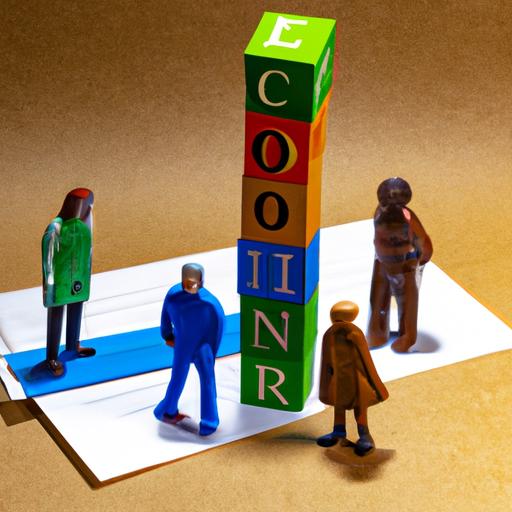Introduction
Have you ever wondered how we acquire our behaviors, beliefs, and values? The process of socialization plays a pivotal role in shaping our individual identities and molding us into members of society. But have you ever pondered who pioneered this concept? In this article, we will delve into the world of socialization and uncover the answer to the question: who is the father of socialization?
Defining Socialization
Before we dive into the depths of socialization’s origins, let’s establish a clear understanding of what it entails. Socialization refers to the lifelong process through which individuals acquire the knowledge, skills, and cultural norms necessary to function within a society. From the moment we are born, we are exposed to various agents of socialization, such as family, peers, schools, and media, which shape our behaviors, attitudes, and social interactions.
The Significance of Understanding the Father of Socialization
Understanding the father of socialization is not merely an exercise in historical curiosity; it holds immense value in comprehending the foundations of this fundamental concept. By exploring the work of the early pioneers, we gain insight into the theories and ideas that have shaped our understanding of socialization today. It allows us to appreciate the evolution of this field and recognize the diverse perspectives that have contributed to our comprehension of human development.
So, let us embark on this intellectual journey and unravel the mystery of who the father of socialization truly is. Join me as we explore the early theories, delve into the contributions of influential figures, and critically examine the perspectives that have shaped our understanding of socialization. Together, we will uncover the profound impact of the father of socialization and shed light on this intricate process that defines our very existence.
Understanding Socialization
Explanation of Socialization and Its Significance in Human Development
Socialization is a complex and indispensable process that influences our development as individuals and members of society. It encompasses the acquisition of social norms, values, and cultural practices that guide our behavior. Through socialization, we internalize societal expectations and learn how to navigate various social contexts.
This process begins at birth and continues throughout our lives. As infants, we rely on our caregivers to provide us with the necessary care and attention, shaping our understanding of trust, love, and security. As we grow older, our socialization expands to include other influential agents such as peers, schools, and the media. These agents expose us to a wide range of experiences, beliefs, and attitudes, contributing to the formation of our identities.
The Role of Socialization in Shaping Individual Behavior and Beliefs
Socialization plays a crucial role in shaping our behavior and beliefs. It provides us with the tools to navigate social interactions, understand societal norms, and develop a sense of self. Through socialization, we internalize behavioral patterns, values, and attitudes that align with our specific culture or social group.
The impact of socialization on our behavior can be seen in various aspects of our lives. It influences how we communicate, dress, and interact with others. Additionally, socialization molds our beliefs and attitudes towards various issues, such as religion, politics, and morality. It shapes our perception of right and wrong, influencing our decision-making processes and guiding our actions.
By understanding the significance of socialization in human development, we gain a deeper appreciation for the impact it has on our lives. Recognizing the role socialization plays in shaping our behavior and beliefs allows us to reflect on our own experiences and consider the influence of external factors on our individuality.
In the next section, we will explore the early theories of socialization and the influential figures who contributed to our understanding of this intricate process. Stay tuned as we uncover the fascinating perspectives that have shaped the father of socialization’s legacy.
Early Theories of Socialization
Before we can identify the father of socialization, it is crucial to explore the early theories that laid the foundation for our understanding of this complex process. These theories, put forth by influential figures in the field, have significantly contributed to our comprehension of socialization.
Overview of Early Theories
Early theories of socialization emerged in the late 19th and early 20th centuries, aiming to explain how individuals acquire their behaviors and beliefs. These theories provided insights into the social forces that shape human development and paved the way for future research on socialization.
One prominent theory is the psychoanalytic theory proposed by Sigmund Freud, who believed that socialization is influenced by unconscious desires and drives. According to Freud, individuals undergo a series of psychosexual stages that impact their personality development and socialization process.
Another influential theory is the behaviorist theory, championed by psychologists such as John B. Watson and B.F. Skinner. Behaviorists emphasize the role of external stimuli and reinforcement in shaping human behavior. They argue that socialization occurs through the process of conditioning, where individuals learn and adopt behaviors based on rewards and punishments.
Key Figures and Perspectives on Socialization
Several key figures have made significant contributions to the understanding of socialization. One such figure is Jean Piaget, a developmental psychologist who proposed a cognitive theory of socialization. Piaget’s theory focuses on the cognitive processes involved in social interaction and emphasizes the role of individual cognition in shaping social behavior.
Another notable figure is Lev Vygotsky, whose sociocultural theory highlights the importance of social interaction and cultural context in socialization. Vygotsky argued that individuals acquire knowledge and skills through collaborative interactions with more knowledgeable others, such as parents and teachers.
These early theories and the perspectives of influential figures have shaped our understanding of socialization. They provided valuable insights into the mechanisms underlying human development and how individuals become integrated into society. By exploring these theories, we can gain a deeper appreciation for the complexities of socialization and its profound impact on our lives.
Critiques and Alternative Perspectives
As with any theory, Emile Durkheim’s perspective on socialization is not without its fair share of criticisms. While Durkheim’s contributions to the field of socialization are significant, it is essential to examine alternative perspectives and acknowledge the diverse range of ideas that exist within this domain.
Criticisms of Durkheim’s Theory of Socialization
Durkheim’s theory of socialization has faced scrutiny from various scholars and researchers. Some argue that his emphasis on social integration and collective consciousness overlooks the importance of individual agency and personal experiences in the socialization process. Critics contend that Durkheim’s theory fails to account for the complexities of modern society and the impacts of globalization, technology, and cultural diversity on socialization.
Furthermore, Durkheim’s theory has been criticized for its limited focus on the macro-level aspects of socialization, neglecting the micro-level interactions and interpersonal dynamics that shape individual development. Some scholars argue that his theory lacks nuance and fails to capture the intricate interplay between social structures, institutions, and individual agency.
Introduction of Alternative Perspectives on the Father of Socialization
While Durkheim’s contributions are significant, it is crucial to acknowledge that he is not the sole authority on the subject. Alternative perspectives on the father of socialization exist, offering different insights and interpretations. Scholars such as George Herbert Mead, Jean Piaget, and Lev Vygotsky have made substantial contributions to our understanding of socialization, each with their unique theories and perspectives.
Brief Discussion of Other Influential Figures in the Field
In addition to Durkheim and the aforementioned scholars, numerous other influential figures have contributed to the field of socialization. Sigmund Freud’s psychoanalytic theory, for instance, explores how early childhood experiences and unconscious processes shape socialization. Erik Erikson’s psychosocial theory examines the lifelong process of socialization and the development of individual identity through various stages of life.
By acknowledging alternative perspectives and considering the critiques of Durkheim’s theory, we can engage in a more comprehensive and holistic understanding of socialization. This broader perspective allows us to appreciate the diverse range of ideas and theories that contribute to the ongoing development of this field.
Conclusion
In conclusion, understanding the father of socialization is crucial to comprehend the intricate process through which individuals acquire behaviors, beliefs, and values. Emile Durkheim, a prominent figure in the field, holds the esteemed title of being the father of socialization. His groundbreaking contributions have shaped our understanding of socialization and its impact on society.
Durkheim’s theory on socialization emphasizes the role of social institutions in shaping individual behavior and maintaining social cohesion. He believed that through the process of collective consciousness and shared values, individuals internalize societal norms, allowing for social order and harmony. Durkheim’s work has had a profound influence on the field of sociology and continues to be influential in understanding the complexities of human development.
While Durkheim’s theory holds significant weight, it is important to recognize that there are alternative perspectives and criticisms surrounding the father of socialization. Scholars and theorists have contributed various insights, challenging and expanding our understanding of this intricate process.
In our ongoing quest to unravel the mysteries of socialization, it is crucial to remain open to diverse perspectives and continue exploring the ever-evolving nature of this field. By examining the theories and ideas of influential figures like Emile Durkheim, we gain a deeper appreciation for the intricate mechanisms that shape our identities and our place in society.
So, next time you ponder the origins of socialization, remember the father of socialization, Emile Durkheim, and his monumental contributions to the field. Let us continue to explore, question, and expand our understanding of this fundamental process that lies at the core of our existence.



